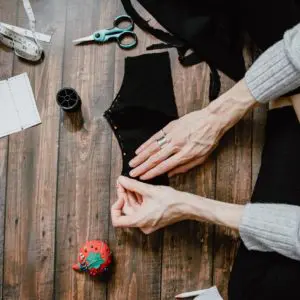September 4, 2020
As the COVID-19 pandemic continues, and recommendations and requirements about face coverings continue to evolve, we know some patients with asthma have questions about wearing masks in public. This guidance is provided to aid physician-patient discussions on the topic.
- The CDC recommends wearing face masks with two or more layers in public settings where other social distancing measures are difficult to maintain (e.g., grocery stores and pharmacies). Face masks help to stop the spread of the virus as COVID-19 can be spread by people who have no symptoms and do not know they are infected.
- Make sure the mask covers both your nose and mouth and is secure under your chin. Do not use masks with one-way valves or vents as this type of mask does not prevent you from transmitting COVID-19 to others.
- Face masks should not be placed on young children under age 2 or anyone who has trouble breathing, or is unconscious, incapacitated or otherwise unable to remove the mask without assistance.
- There is no evidence that wearing a face mask makes asthma worse. While we support and advocate that people follow CDC recommendations, some people with asthma do not feel they can breathe adequately while wearing a mask. If that’s true for you, try to avoid going to public places as much as possible. Being in public without a face mask may increase your chances of passing on a COVID-19 infection to others, even if symptoms are not present.
- Always use a clean mask for each outing. If possible, don’t take your mask off and put it back on during a single outing, as touching the mask increases the possibility of contamination.
- Continue to practice good hand hygiene and limit touching your face, especially when in public. Masks are not a replacement for social distancing, which continues to be extremely important in stopping the spread of the virus.
- If you have asthma, we strongly recommend you continue to take your maintenance asthma medications to keep symptoms under control and to reduce your risk for an asthma exacerbation or hospitalization. Maintain follow up with your allergist and primary care physicians for your continued care during this time.
About ACAAI
The ACAAI is a professional medical organization of more than 6,000 allergists-immunologists and allied health professionals, headquartered in Arlington Heights, Ill. The College fosters a culture of collaboration and congeniality in which its members work together and with others toward the common goals of patient care, education, advocacy and research. ACAAI allergists are board-certified physicians trained to diagnose allergies and asthma, administer immunotherapy, and provide patients with the best treatment outcomes. For more information and to find relief, visit AllergyandAsthmaRelief.org. Join us on Facebook, Pinterest and Twitter.

